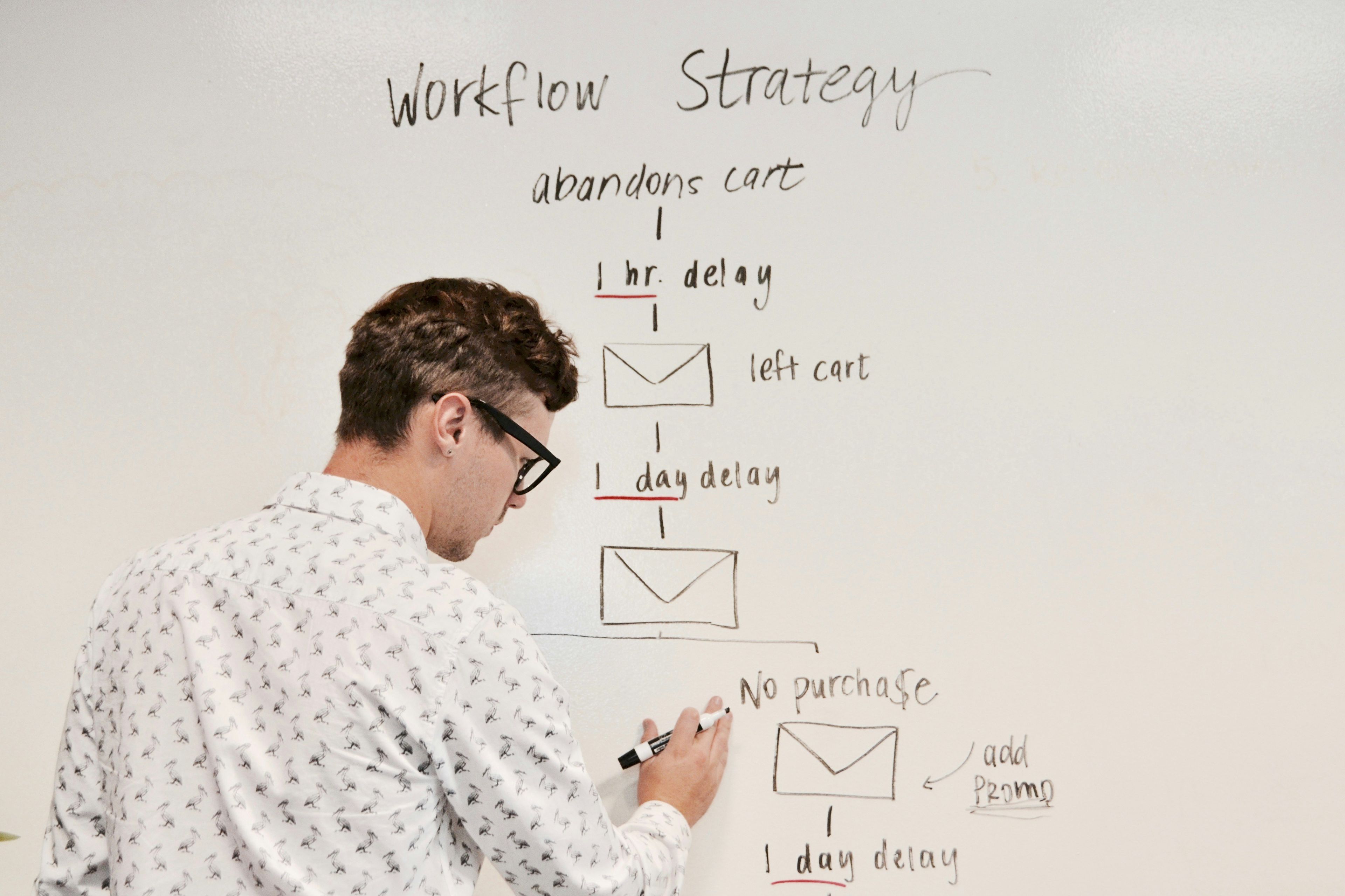From Scrappy to Scalable: The AI Advantage for Small Businesses
Artificial intelligence (AI) is no longer a futuristic concept reserved for Silicon Valley giants. It’s here, it’s affordable, and it’s surprisingly useful — even in its early stages.
For small businesses looking to work smarter (not harder), using AI as a tool to supercharge their marketing efforts might just be the game-changing pivot they didn’t know they needed.
But why is AI becoming so central to modern marketing strategies and, most importantly, why should small businesses start paying attention?
Short on time? Head straight to how small businesses are using AI to stay ahead, or dive into the full article below.
What is AI marketing?
The term “AI marketing” refers to the use of artificial intelligence technologies to make marketing tasks more efficient. That can mean everything from automating email campaigns and generating content to analysing customer data and personalising digital experiences at scale.
For small businesses juggling limited resources, AI allows them to compete with bigger players without needing an entire team of experts or a six-figure ad spend.
AI marketing isn’t just for the giants
If you're thinking AI is still the domain of huge tech corporations, think again.
As of late 2024, 71% of professionals worldwide had already integrated some form of AI into at least one function, whether across their whole marketing output or in select areas. And this year, only 13% had no plans to do so.
What does that tell us? AI marketing is no longer optional: it’s mainstream. And small businesses stand to benefit the most.
Why? Because AI levels the playing field. With the right tools, a small team (or even a solo founder) can:
Generate and optimise compelling content
Automate repetitive tasks like email marketing or customer segmentation
Get meaningful insights from data without needing a dedicated analyst
Personalise user experiences in a way that would have taken hours manually.
In other words, small businesses can do more (and do it better) with less.
How are small businesses using AI in marketing?
AI is already being used in a range of practical ways. According to a February 2024 global survey, the most common applications of AI in marketing include:
Email marketing automation (58%)
Social media management (49%)
Content management (33%)
Paid advertising (32%)
SMS marketing (30%)
What’s interesting is that these aren’t “nice to have” marketing add-ons. They’re fundamentals. AI is just making them more affordable — and more effective.
It’s also starting to play a bigger role in areas like market research where it’s helping businesses quickly pull insights on customer behaviour, trends, and what the competition is up to, making smart decision-making far more accessible.
But what about ROI?
According to Deloitte’s State of Generative AI in the Enterprise report, 74% of organisations that responded to their surveys reported measurable ROI for their most advanced generative AI initiatives, with some even saying they’re seeing returns above 30%.
And while some small businesses might worry that AI tools are too expensive, the reality is that 48% of marketers currently spend less than 10% of their budget on AI-driven campaigns. Many of the most widely used tools like ChatGPT have free or low-cost plans that deliver immediate value.
Still not convinced? Look at what’s coming…
According to the Econsultancy Future of Marketing report, optimism about AI’s role in marketing is high, with 76% of marketers feeling confident about the future thanks to these new tools.
And this optimism isn’t misplaced. The global marketing automation industry was valued at over $6.6 billion in 2024 and is expected to more than double by 2030. To us, that kind of growth signals that AI adoption, specifically in marketing, is here to stay.
Now’s the perfect time to get ahead of the curve while the tools are accessible, the learning curve is manageable, and the early mover advantage is still up for grabs.
How small businesses use AI to get ahead
AI marketing tools are best seen not as replacements, but as accelerators. The edge comes from combining automation with strategic thinking, i.e. doing what you already do well, just more efficiently and with sharper insight. Here’s where small businesses can start seeing big wins:
Smarter content creation (Never start from a blank page again)
Write blog drafts, captions, product descriptions, or email copy
Repurpose long-form content into bite-sized formats
Brainstorm new content ideas when inspiration runs dry
More effective email marketing (Higher open rates, better engagement, and more conversions)
Personalise subject lines
Optimise content
Structure campaign journeys
Automate A/B testing
Segment your audience based on behaviour
Track interactions across platforms and build smarter funnels
Easier search optimisation (No need to become an SEO master)
Identify long-tail keywords
Generate metadata
Rewrite content with keywords included
Suggest crosslinks and backlinks
Why the human touch still matters
Despite the buzz, AI isn't a silver bullet. The small businesses seeing real success with AI marketing are the ones who understand how to use it. 40% of marketers said AI skills are among the most important areas to develop over the next two years. The same share highlighted data and analytics.
For small businesses, that means training yourself and your team to get confident with AI, experiment with automation platforms, and stay curious about what’s possible.
One of the most underappreciated skills is effective prompting.
To get high-quality output from AI tools like ChatGPT, Midjourney or Jasper, you need to ask the right questions. That means learning how to:
Set clear context
Be specific in tone, audience, and format
Iterate and refine
The difference between a passable AI output and something on-brand, engaging and accurate often comes down to how well the prompt was written. And that’s where small business owners can shine. After all, no one knows your brand better than you.
And even the best AI tools can’t replace emotional intelligence, brand nuance, or ethical judgment. A human eye is essential for:
Checking tone and consistency
Spotting inaccuracies or off-brand phrasing
Adding local or personal relevance
As automation increases, human-led quality control will become the secret weapon.
Why should small businesses care about AI marketing?
Because time, money, and impact matter. AI helps small businesses get more done, more accurately — for less.
Think about all the hats small business owners wear when it comes to their marketing function: content strategist, social media manager, copywriter, designer, customer service rep. And that’s just the beginning!
AI can help lighten that load significantly, whether it’s generating a month’s worth of blog content in seconds or setting up a smart email flow that nurtures leads while you sleep, these tools are simply built for efficiency.
They can analyse what content performs best, recommend when and where to post, and tailor entire campaigns to individual customer behaviours. That kind of insight used to require a team of marketers and a serious data budget. Now, it’s accessible from your laptop (just don’t forget that human touch).
The businesses that embrace AI early (i.e. right now) with the right balance of tech and human input, will be the ones that grow faster. It’s that simple. And if you’re still unsure, consider this:
In 2024, over two-thirds of marketers planned to increase their budget for marketing automation in the following year.
That’s not a gamble, that’s a green light.
At Studio East, we help small businesses make sense of AI, and make it work.
Click here to get in touch once you're ready to explore what’s possible.






